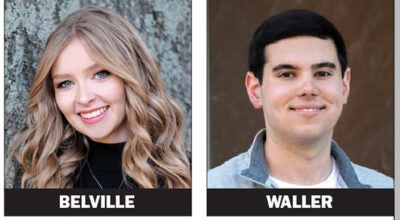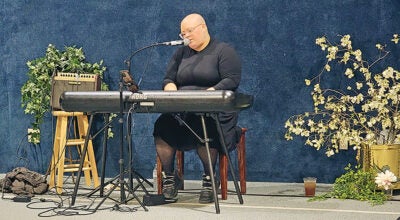Staying with it
Published 10:35 am Thursday, October 23, 2008
MILLER — It’s a vocation many would find hard to pursue. Caring for the patients in a hospital’s burn unit can be difficult, heartbreaking work.
Yet for 26 years that is what Barbara Schlegel of Miller has done as one of the nurses at the burn unit at Cabell Huntington Hospital, the only such unit in West Virginia.
Cabell provides care for patients in the Tri-State as well as part of Virginia.
Schlegel moved with her husband Edward to eastern Lawrence County after earning her bachelor’s in nursing from Capital University in Columbus and a five year-stint at Riverside Hospital. She joined the unit when it opened in 1982 and has worked on that floor ever since.
“I had a cousin who was older whom I admired who was in nursing,” she said. “I’ve not regretted it.”
Cabell has a four-bed unit that allows Schlegel to give more individual care than at larger units at metropolitan hospitals — care that includes reaching out to frightened family members.
“We are responsible for all their care,” she said. “We change their bandages, which can take a couple of hours.”
Bandages will be cut off and burns washed twice a day. Sometimes a patient will have to rest during the procedure that can be very painful.
Approximately 200 burn patients will come into Cabell a year. However only about 65 percent will be admitted to the burn unit. The main cause for burns severe enough for long-term hospitalization comes from flame with accelerant. That translates to anything from people burning trash or priming a carburetor with gasoline to meth lab explosions.
Injuries like that mean a long hospital stay, usually one day for each percent of the body that is burned. The least severe and most painful is a first-degree burn that resembles a sunburn without blisters. If the skin does blister, that means it is a second-degree. The most severe — a third degree burn — gives the least discomfort because the nerve endings are so damaged.
Throughout the care, especially during bandage changes, medication is given to make pain as tolerable as possible. However, that can be one of Schlegel’s frustrations when her patient has a history of drug addiction.
“What we give them doesn’t help,” she said. “They develop such a tolerance.”
Job satisfaction comes from interacting with patients and their families, she says. Often the nurses become a support group for the family members because stays are so long they must get back to their routines of daily life for at least hours at a time.
“If they do have to leave and go back to a job, they feel better,” Schlegel said. “You really get to know a patient and the family very well when they are here for months. There are still people who come back (to visit) and send us Christmas cards.”
Part of the job of reassuring the family is to make sure they understand that most burns heal without any sign of injury.
“They want to know if there will be a lot of scarring. They are worried for the patient,” she said. “They think of Freddy Krueger. It will heal up fine.”
Ironically, while nursing gives Schlegel great personnel satisfaction, she definitely doesn’t take her work home, especially when she’s looking for off-hours entertainment.
“I can’t watch shows on TV that do some of the things I do,” she said. “When I am doing it, I am focused on what needs to be done. I do what I can to make it easy for (the patients). But medical shows, I can’t watch those shows.”





